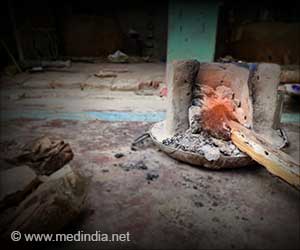UBC researchers discover singlet oxygen indoors during cooking, highlighting health risks and advocating for improved kitchen ventilation.

Scientists cook pancakes, Brussels sprouts and stir fry to detect an oxidant indoors for the first time
Go to source).
Indoor Singlet Oxygen Exposure: Implications for Health and Cooking Practices
Singlet oxygen, recognized as an oxidizing agent, can have both advantageous and detrimental effects. For instance, ozone in the stratosphere is a beneficial example. However, in the context of indoor environments, singlet oxygen exposure poses risks to lung health, potentially leading to the onset of conditions such as cancer, diabetes, and heart disease over time.‘Cooking under sunlight releases singlet oxygen, potentially affecting health. #indoorairquality #kitchensafety #medindia’





The act of cooking food can release brown carbon molecules, which, upon absorbing light, have the capacity to generate oxidants. Furthermore, chefs exposed to cooking emissions face an increased risk of chronic diseases.Historically, it was thought there wasn’t enough light indoors to have much reactive chemistry, but there are many light sources in modern kitchens.
Indoor Cooking and Singlet Oxygen: The Impact of Sunlight
UBC researchers thought if all the right ingredients were in place—namely, cooking in a lit area—they might find singlet oxygen indoors where it had never been detected.They investigated by cooking three meals representing breakfast, lunch and dinner: pancakes, Brussels sprouts, and vegetable stir fry, sampling the air and exposing it to three different types of light: UV, sunlight, and fluorescent.
They detected singlet oxygen at around the same concentration for all three dishes. However, its highest concentration occurred in sunlit experiments, meaning naturally lit kitchens likely see more of this oxidant.
Advertisement
The researchers recommend ventilation and air filtration in kitchens to reduce exposure to aerosols while cooking.
Advertisement
Reference:
- Scientists cook pancakes, Brussels sprouts and stir fry to detect an oxidant indoors for the first time - (https://phys.org/news/2024-05-scientists-cook-pancakes-brussels-fry.html)
Source-Medindia









